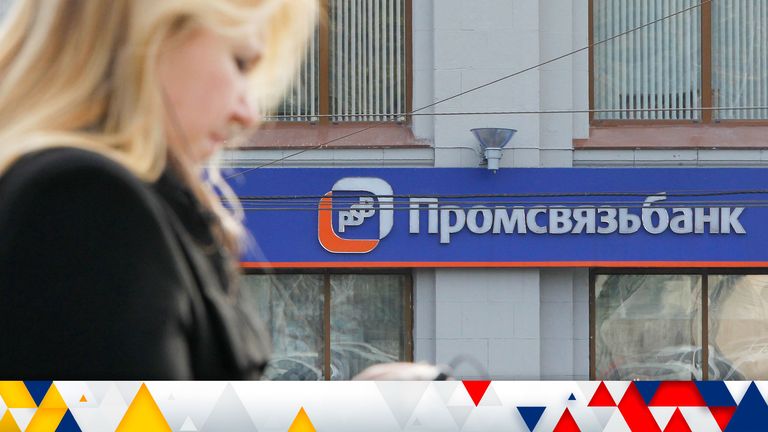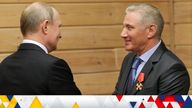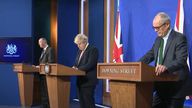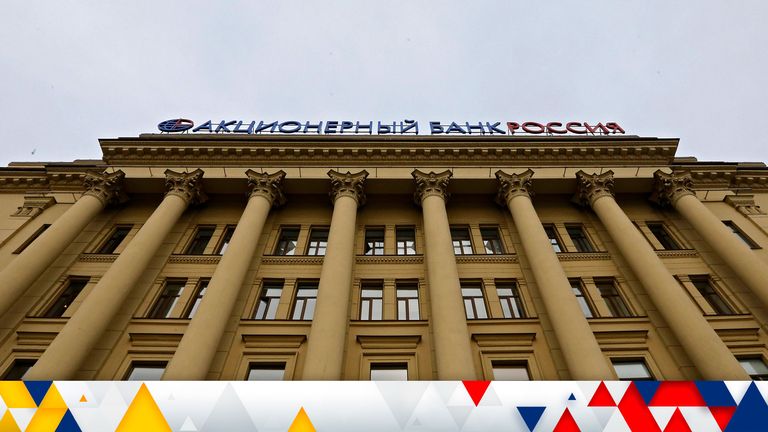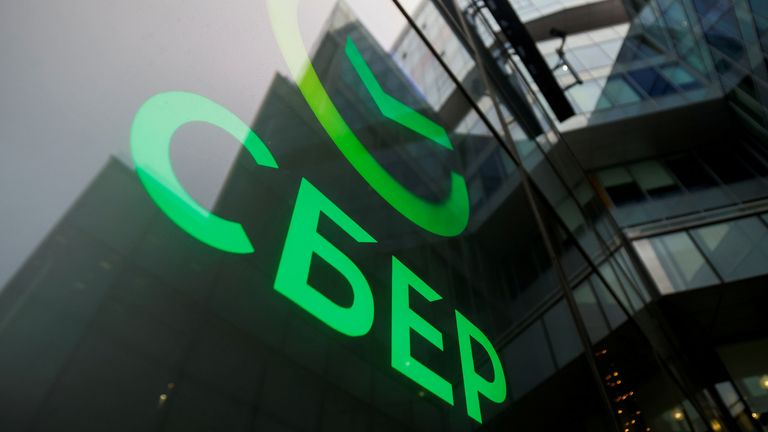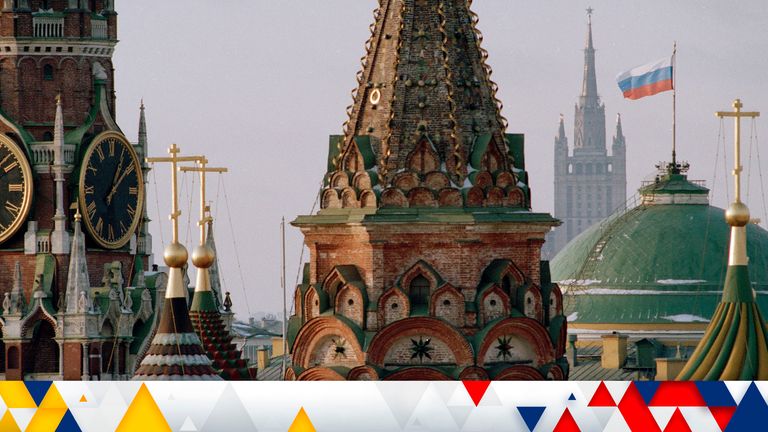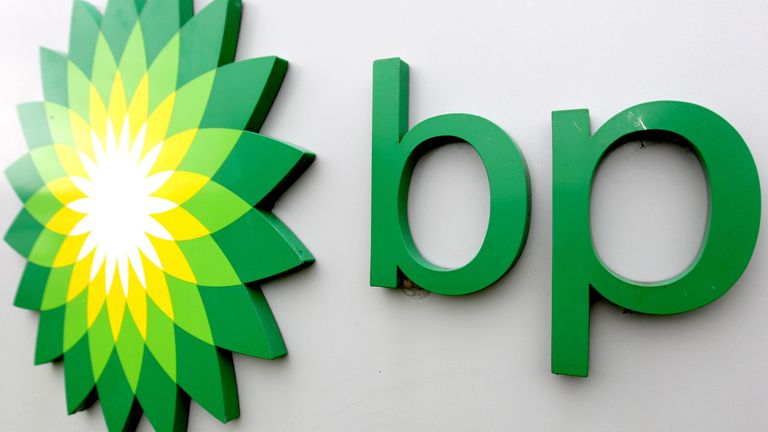PM’s sanctions ‘barrage’ will have little impact on Vladimir Putin’s war machine
The sanctions unveiled by Boris Johnson today against certain Russian banks and individuals fell well short of what some had been expecting.
That was certainly the impression created as MPs, including Sir Iain Duncan Smith, one of Mr Johnson’s predecessors as Conservative Party leader, queued up to urge the PM to go further.
That he has not may well be, as the Labour leader Sir Keir Starmer suggested, because the UK government may wish to hold back further, more stringent, measures in the hope of deterring Vladimir Putin from further aggression against Ukraine.
Mr Johnson himself confirmed that in the Commons by talking about “keeping something in reserve” and this only being a “first barrage”.
Yet it is notable that the five Russian banks on which sanctions were announced today – Rossiya, IS Bank, General Bank, Promsvyazbank and the Black Sea Bank – are all relatively small.
The bigger Russian lenders, the likes of Sberbank, VTB Bank, Gazprombank, Alfa Bank and VEB, were all notable by their absence.
Sberbank, through which more than half of all Russian wages and pensions flow, would have been an obvious target.
Moreover, in sanctioning the three high net worth individuals identified by the PM today – Gennady Timchenko, Boris Rotenberg and Igor Rotenberg – Britain was merely playing “catch-up” with the United States.
Washington first sanctioned Mr Timchenko, a co-founder of the commodity trading firm Gunvor, as long ago as 2014.
Igor Rotenberg and his uncle Boris, who co-owned the gas pipeline and electricity power line construction firm Stroygazmontazh, were also sanctioned by the US at that time.
So, while these sanctions will clearly have an impact on these individuals and companies, they are unlikely, by themselves, to have much impact on Russia’s economy or on Mr Putin himself.
The bigger question is what else Mr Johnson could have announced.
The nuclear option would have been to have kicked Russia’s banks out of SWIFT, the international banking messaging system used by more than 11,000 institutions worldwide, but this was probably a non-starter.
Russia’s banks are deeply embedded in the Western financial system and such a measure would potentially have knock-on effects.
It would prevent banks from elsewhere around the world being able to collect payments from Russian banks – potentially hurting Western creditors of those banks and their Russian customers.
Foreign lenders are estimated to have some $30bn worth of exposure to Russian lenders.
It would potentially contribute to an energy crisis if, for example, the Russian gas supplier Gazprom was left unable to use SWIFT to collect payments owed to it by Western customers.
This also explains why there has been little enthusiasm in other European capitals to take such a measure.
Big energy importers, such as Germany and Italy, are heavily dependent on Russian gas and do not wish to intensify an already tough situation for their economies.
Germany will feel that, by pulling the plug on the controversial Nord Stream 2 pipeline, it has exposed its economy by more than enough.
So the SWIFT option looks unlikely, at this stage, to already be deployed.
More likely will be a push, led by the US, to limit the Russian banking system’s access to US dollars by adding the country’s biggest banks to the so-called Specially Designated Nationals (SDN) list.
Yet this too may have less of an impact than once it did.
Russia has taken steps in the last decade to diversify its reserves away from the greenback and into other assets, including the euro and gold.
Apart from the desire to leave something in reserve, Mr Johnson may well have been guided by a reluctance to hurt UK companies and the UK economy in particular.
BP, one of the UK’s most widely-held companies and the ninth-largest business in the FTSE-100, owns a 20% stake in Rosneft, the state-controlled Russian oil and gas producer, an asset worth – even following the recent falls in both Rosneft’s share price and the Russian ruble – some £8.7bn.
Reprisals involving that shareholding would be extremely damaging for the company.
Mr Johnson also stopped short of seeking to block Russian companies from raising capital in London, something he threatened last week, which may well be because this would have damaging consequences for the UK’s financial services sector.
Alternatively it may be because the UK government had chosen to identify specific businesses instead.
Sanctioning oligarchs is also not without difficulty, not least because of the close correlation between these people and the businesses they own.
When the US tried to sanction Oleg Deripaska, the oligarch who is ultimate owner of the Russian aluminium companies Rusal and EN+, it created upheaval in metal markets and a spike in aluminium prices.
For the UK in particular, the worry is that the horse may have already bolted.
London has become notorious globally as the “laundromat” through which many oligarchs have rinsed their ill-gotten gains.
Much of that money will have been recycled into luxury properties in London and the home counties.
Unfortunately, much of that property will have been bought via companies set up in offshore jurisdictions with no public register, making it difficult to find out who the ultimate owners of these properties are.
Read more:
Oil marches towards $100 a barrel as markets react
What will happen if Putin chooses all-out war?
Can Moscow withstand more sanctions?
Some of these jurisdictions make it even harder to trace ultimate ownership by allowing the owners of these offshore companies to use “nominal shareholders” who appear to be the ultimate owners of these properties.
So, depressingly, the chances are that the sanctions unveiled today will have little impact on Russian individuals close to Mr Putin or the companies they control.
Still less will be the impact on the Russian economy or Mr Putin’s war machine.
It looks as if the heavy lifting on this front will have to be done not by the UK or the EU but by the US.
